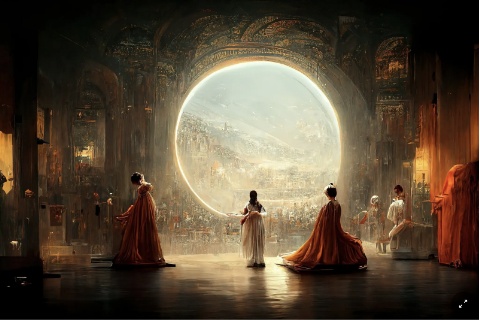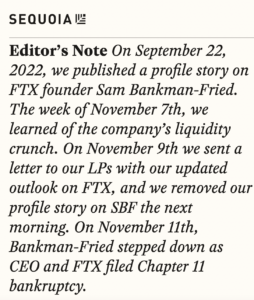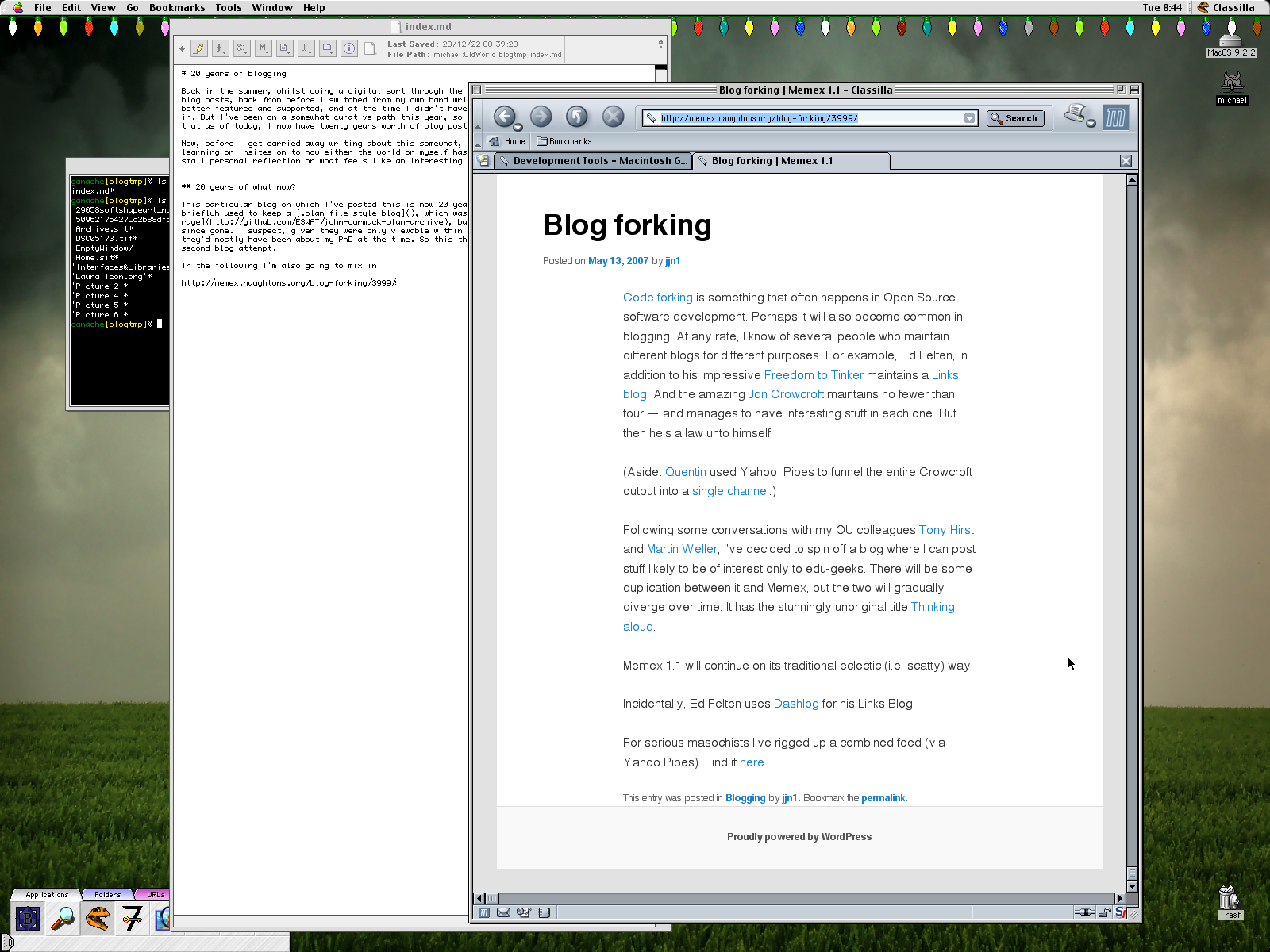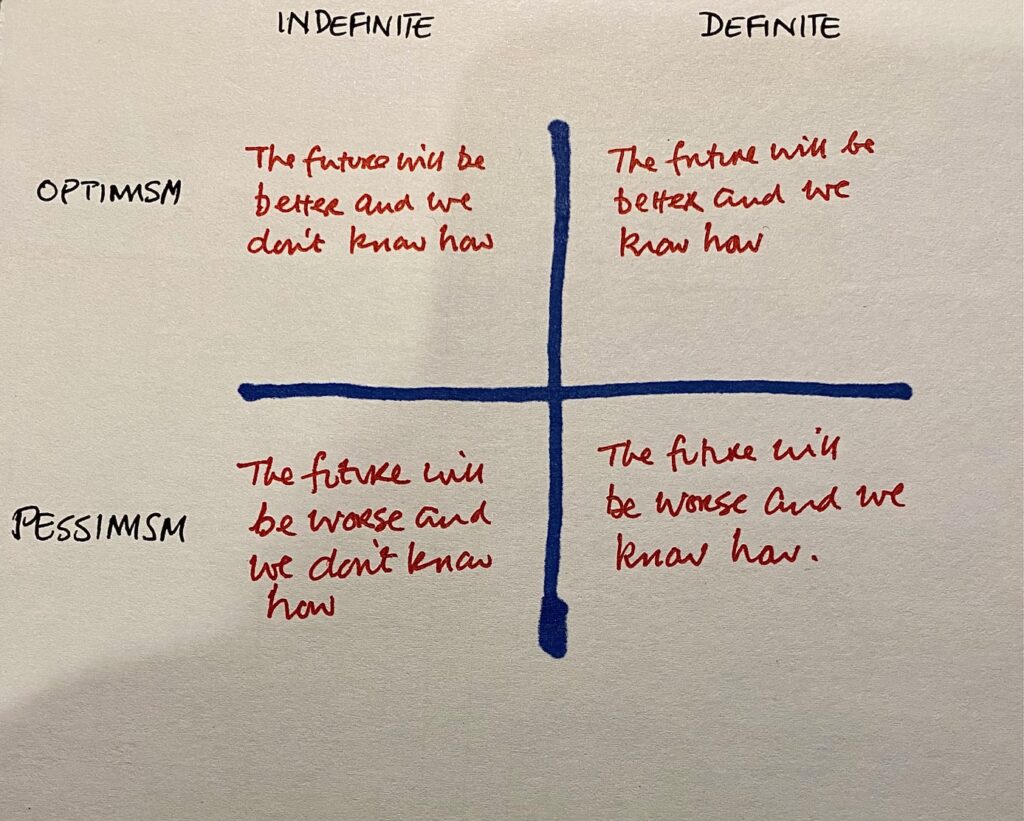Quintessentially English
A parish church seen on a walk yesterday.
Quote of the Day
”A committee is an animal with four back legs.”
- John Le Carré
Musical alternative to the morning’s radio news
Handel | Arrival of the Queen of Sheba | Academy of Ancient Music
Can’t think of a better way to greet the arrival of a New Year!
Long Read of the Day
The Deep Structure of Democratic Crisis
Talk to any (continental) European who is interested in politics and soon or later you will find yourself talking about the radical difference between the ‘Anglosphere’ and the rest of Europe. And that’s because such a difference really exists. The UK and the US have more in common than most people seem to realise. Just to list three examples: both have dysfunctional electoral systems which produce un-representative legislatures; both are two-party states in which the two dominant political parties have been hollowed out by sectional interests; and both are now scarred by alarming levels of socio-economic inequality. And of course they also share a common language and ruling elites heavily invested in neoliberal ideologies.
All of which is a long way of explaining why this review essay by Ruth Berins Collier and Jake Grumbach about the underpinning structural features of post-industrial political economy that constitute a challenge to democracy is interesting. It’s primarily about the US, but it has resonances on this side of the Pond also. What’s most striking about it is the way it tries to get at the seismic shifts that underpin the chaos of the present moment in both societies.
First, to use a term of art from political science, the structure of mass politics shifted from a single dominant “cleavage”— a conflict between owners and workers organized by labor unions — to a pattern in which politics is organized around many different competing cleavages. Second, there was a shift in the balance of power between capital and the state, which reduced the capacity of the government to respond to social and economic upheaval. Both of these developments present a challenge to democracy, and technology has only accelerated each.
Worth a read, IMO.
Books, etc.
Just reflecting on the best books I read in 2022…
The ones that particularly stand out are:
-
Gary Gerstle’s The Rise and Fall of the Neoliberal Order. I found it a compulsive read — and sometimes a salutary one because it forced me to contemplate the errors of my casual assumptions! For example, for many years after I’d read Rodgers’s ‘The Age of Fracture’ and Mirowski on Hayek, Von Mises and the stealthy rise of the ‘Neoliberal Thought Collective’ I’d come to regard Ronald Reagan not as a prime motive force but as a kind of genial cheerleader of economic forces that were already under way as he climbed to the Presidency. Indeed, when I was the Observer’s TV critic during his presidency, I made a point of always referring to him as “the Acting President of the United States” and revelled in the stories of how he watched a re-run of ‘The Sound of Music’ instead of reading James Baker’s Briefing Book the night before chairing the Williamsburg summit. In other words, I underestimated him — saw him as the useful idiot of people smarter than him. But the most valuable thing about the book is the way it clarified the process by which an ideology gets translated into actual power. That’s where Gerstle’s idea of a political ‘order’ is such a masterstroke, especially the criterion that, to qualify, it has to be a mindset that infects not just one particular political party but also its opponents! That’s very illuminating in relation to Tony Blair’s ’New Labour’! Also, as I read the book I kept thinking about Thomas Kuhn and his view of how scientific disciplines work. You know the model: in any discipline, normal life revolves around stable intellectual frameworks that he eventually called ‘paradigms’. But then there comes a moment where there’s a realisation that a dominant paradigm is running into trouble and a rival one appears. And then, suddenly, the discipline is plunged into crisis because the old and new paradigms are ‘incommensurable’ — there exists no neutral language by which the relative merits of each can be objectively assessed. (Think Newtonian dynamics and quantum mechanics.) The thought that occurred to me as the book drew to a close is that we are now entering the political equivalent of a paradigm shift. Which means a period of chaos!
-
Roy Foster’s On Seamus Heaney — a moving and sensitive exploration of Heaney’s poetic journey, written by a great scholar who both understands the cultural context in which the poet evolved and loves his work. As do I.
-
Helen Thompson’s Disorder: Hard Times in the 21st Century. A fine book by a great scholar that was long in the making, but worth waiting for. Bill Janeway (Whom God Preserve) wrote a really perceptive review of it alongside the Gerstle book.
-
Jamie Susskind’s The Digital Republic: On Freedom and Democracy in the 21st Century. The most refreshing thing about this fine book is its ideological stance. The reason why most current attempts to rein in tech power are doomed to fail is because its critics implicitly accept its legitimacy rather than being outraged by its arrogant effrontery. That because they’ve been drinking the neoliberal Kool Aid for nearly half a century. Ideology, after all, is what determines how you think when you don’t know you’re thinking. It’s time for a change, and ‘The Digital Republic is a good place to start.
My commonplace booklet
Just what your favourite Instagram Influencer needs
From the current issue of Private Eye (Which God Preserve).
This Blog is also available as a daily email. If you think that might suit you better, why not subscribe? One email a day, Monday through Friday, delivered to your inbox. It’s free, and you can always unsubscribe if you conclude your inbox is full enough already!















